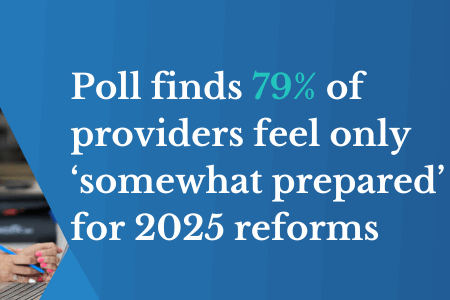Is Your Contractor Actually An Employee?
December 17, 2019 | Guest Bloggers at Mirus

Kinny Legal is an award-winning virtual law firm that offers leading expertise in the aged care law, health law, and retirement law. Their clients are the disruptors, the visionaries, the innovators that will change our world. Their role is to make sure they have the legal structures and protections they need to reach their full potential, so we can all reap the benefits. Please welcome Guest Blogger Jessica Kinny, Solicitor Director of Kinny Legal.
Contracting (and freelancing) have recently emerged as a growing alternative to the traditional employment relationship. It makes perfect sense to hire a contractor to get a particular job done, and there are plenty of reasons why a business may do so. The job may require a set of skills that none of your employees has. You may only need someone for a short timeframe to clear a backlog of work. Or maybe you just want to avoid having to go through a formal recruitment process. However, there are risks in engaging a contractor – especially if that ‘contractor’ is in fact your employee at law and you don’t comply with your employment law obligations (because, after all, you thought they were an independent contractor running their own business!).
More Complicated Than You Think
For example, the fact that an individual is called a ‘contractor’ on paper, sends your business invoices with an Australian Business Number (ABN) and uses a registered business name does not necessarily mean that they are an independent contractor to your business at law. Courts can still look behind a contract to define the true relationship between the parties. If the true relationship is that of an employer/employee, then it doesn’t matter what your contractor agreement says – your business has legal obligations to that individual as an employer that it cannot contract out of under legislation.
The key point to remember is that the court will look at a variety of the issues outlined below to make a determination on the status of the relationship. While some can be more important, it is the totality of the relationship that the court will be trying to determine. For each there are a variety of exceptions that, taken at face value, may lead one to believe the person is actually an employee when in fact they are an independent contractor. However that is the exact reason why the court looks at the relationship as a whole.
So What Are The Important Considerations The Court Will Consider To Determine Whether Your Contractor Is Actually An Employee?
Please click here for 8 key considerations from Kinny Legal.
Need more help?
If you require legal advice or wish to discuss any of the issues raised in this article, please call Kinny Legal on 02 9199 4563 or send email to info@kinnylegal.com. They are recognised experts in aged care law and privacy law, and they would be delighted to answer any questions you have. Recently Mirus Australia announced a formal collaboration with Kinny Legal with the goal of #makingagedcarebetter


